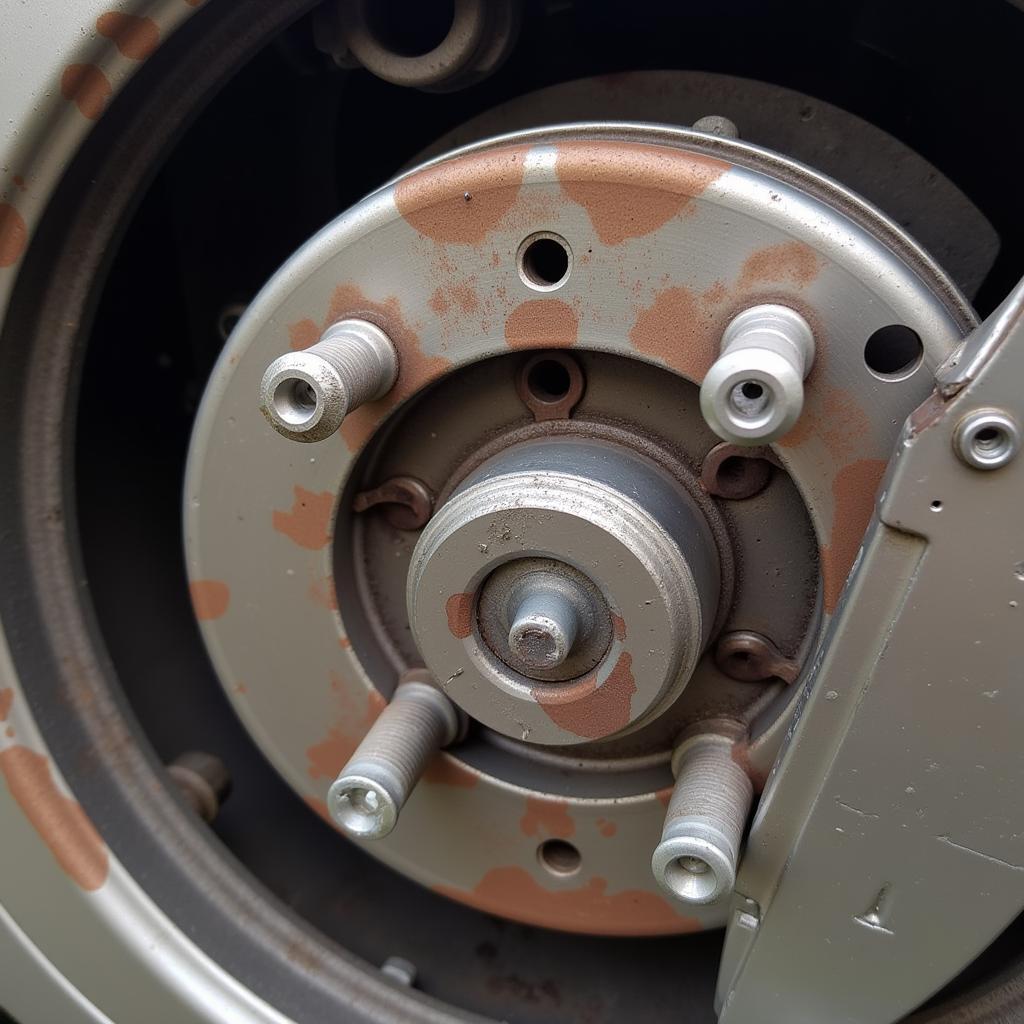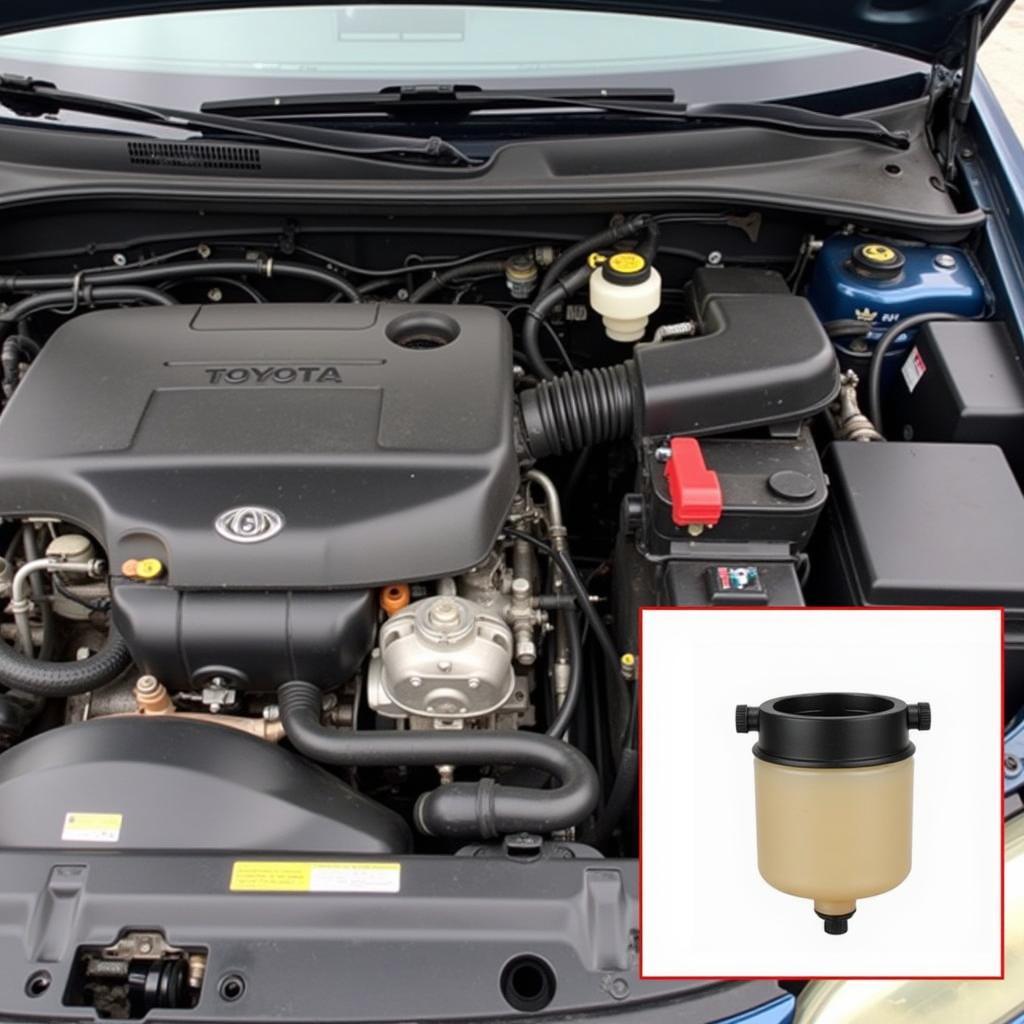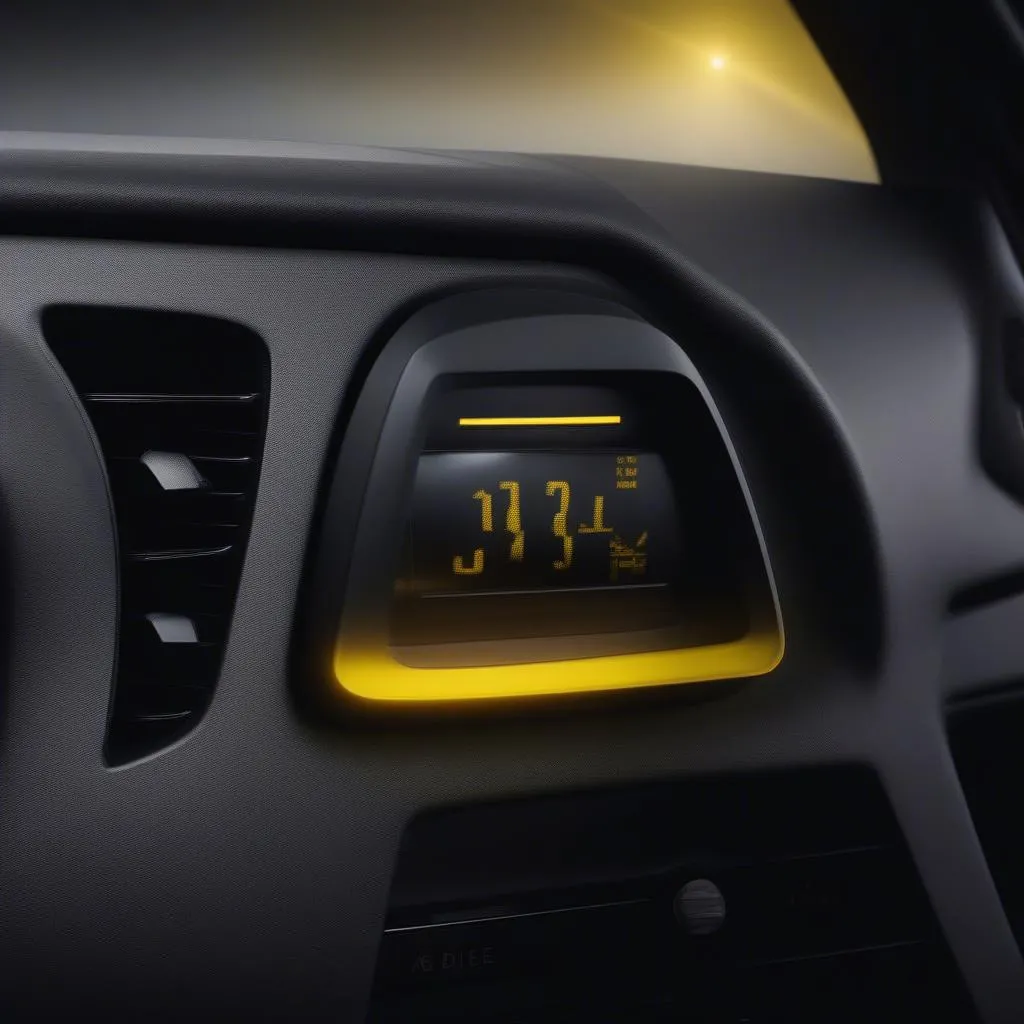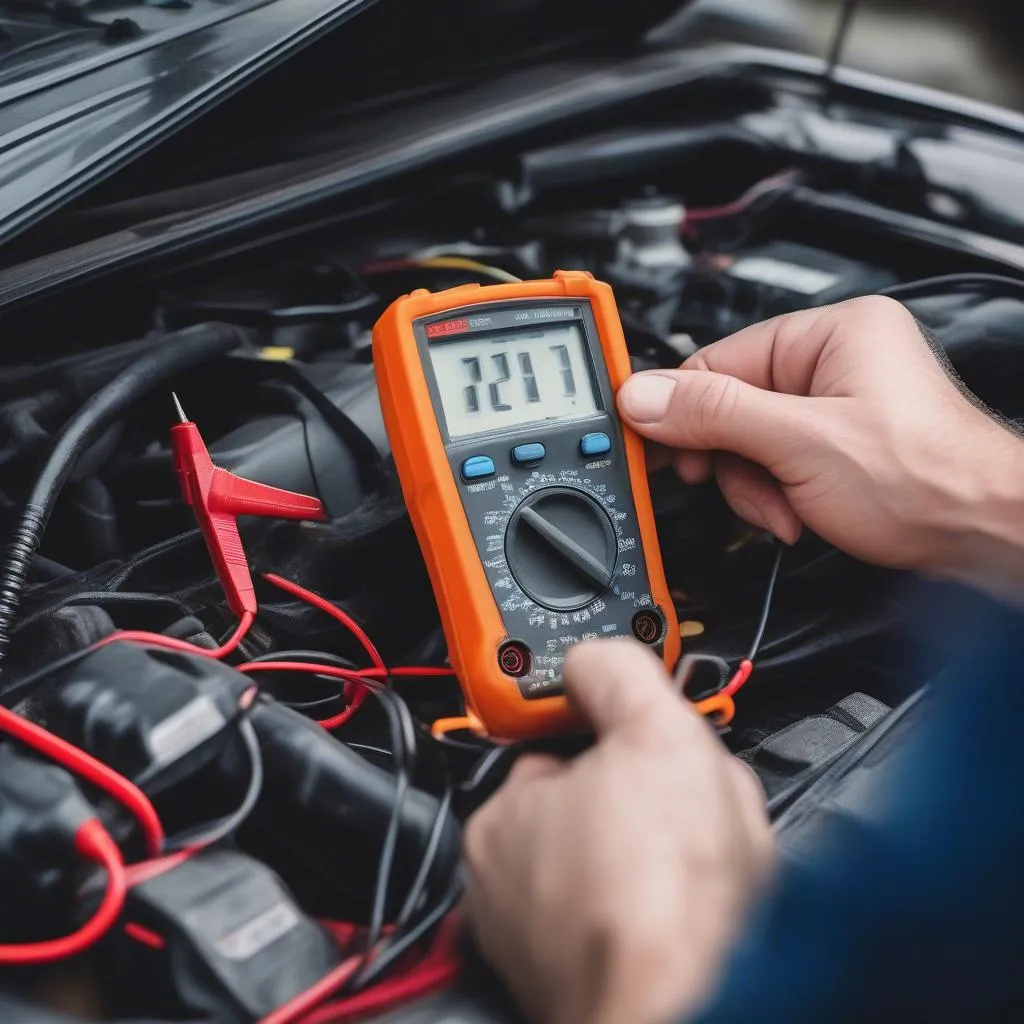The brake warning light on your 2001 Toyota Camry is a crucial safety feature designed to grab your attention when something in the braking system needs attention. Ignoring it can lead to costly repairs and dangerous driving conditions. In this comprehensive guide, we’ll delve into the common reasons why your 2001 Toyota Camry’s brake warning light might illuminate, empowering you to diagnose the issue and take appropriate action.
Understanding Your Camry’s Brake Warning System
Before we jump into the specific reasons, let’s quickly review how your Camry’s brake warning system works. This system is designed to activate the warning light on your dashboard in a few key situations:
- Low Brake Fluid: This is one of the most common reasons for the light to turn on. The brake fluid level in the master cylinder can drop due to leaks or worn brake pads.
- Engaged Parking Brake: It’s easy to forget to disengage the parking brake fully. Your Camry’s system will remind you if you start driving with it even partially engaged.
- Brake System Malfunction: A fault within the system itself, like a failing ABS sensor or a problem with the brake booster, can also trigger the warning light.
Common Causes for the Brake Warning Light in a 2001 Toyota Camry
While the situations listed above are common triggers, pinpointing the exact reason behind the brake warning light requires a bit of investigation. Here’s a closer look at the usual suspects in a 2001 Toyota Camry:
1. Worn Brake Pads
Your Camry’s brake pads are designed to wear down over time. When they reach a certain thinness, a small metal sensor makes contact with the rotor, completing a circuit and turning on the brake warning light.
Expert Insight:
“Replacing brake pads as soon as the warning light comes on is crucial,” says automotive engineer, John Smith. “Driving with worn pads not only reduces your stopping power but can also damage the rotors, leading to more expensive repairs.”
 Worn brake pads on a 2001 Toyota Camry
Worn brake pads on a 2001 Toyota Camry
2. Brake Fluid Leak
A leak in the brake lines, hoses, or calipers can cause a drop in brake fluid level. This drop in pressure will trigger the warning light. Inspect your brake lines for any signs of leaks, which may appear as wet spots or drips.
Expert Insight:
“A brake fluid leak is a serious issue that requires immediate attention from a qualified mechanic,” warns mechanic and automotive instructor, Jane Doe. “Driving with a leak compromises your braking ability and puts you at risk.”
3. Faulty Brake Light Switch
The brake light switch activates your brake lights when you press the pedal. It’s also connected to the brake warning light circuit in some vehicles. A malfunctioning switch can cause the brake lights to stay on continuously or prevent them from working, potentially triggering the warning light on your dashboard.
4. ABS Issues
The Anti-lock Braking System (ABS) in your Camry is designed to prevent wheel lockup during hard braking. The ABS module relies on sensors at each wheel. If a sensor fails or becomes dirty, it can trigger the brake warning light.
5. Issues with the Master Cylinder
The master cylinder is the heart of your braking system, responsible for converting the force from your foot on the brake pedal into hydraulic pressure. A failing master cylinder can lead to a soft or spongy brake pedal feel and can also activate the warning light.
 Brake fluid reservoir in a 2001 Toyota Camry
Brake fluid reservoir in a 2001 Toyota Camry
6. Electrical Problems
Although less common, issues like a blown fuse, corroded wiring, or a faulty connection in the brake warning light circuit can also cause the light to illuminate.
Troubleshooting Tips
If your brake warning light is on, it’s essential to address the issue promptly. Here are some initial steps you can take:
- Check Your Parking Brake: Make sure your parking brake is fully disengaged.
- Inspect Brake Fluid Level: If you feel comfortable, carefully check the brake fluid level in the master cylinder reservoir. If it’s low, add the appropriate brake fluid, but be aware that this is likely a temporary fix until you can address the underlying cause of the low fluid level.
- Visual Inspection: Look for any obvious signs of leaks around your brake lines, hoses, calipers, and the master cylinder.
Important:
If you notice a leak, a severely low fluid level, or suspect a more serious issue, it’s best to stop driving your vehicle and consult with a qualified mechanic immediately.
Conclusion
Addressing the reasons behind a brake warning light in your 2001 Toyota Camry is crucial for your safety and to prevent further damage to your vehicle. While some issues might be straightforward to diagnose and fix, others require the expertise of a qualified mechanic. Remember, a properly functioning brake system is essential for your safety and the safety of others on the road.


